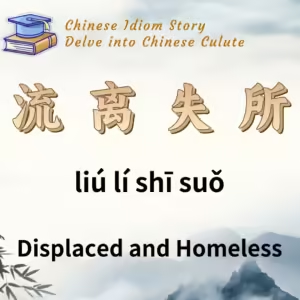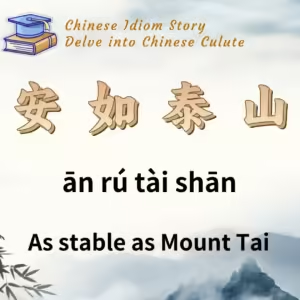
Chinese Idiom: 流离失所 (Liu Li Shi Suo)
English Translation: Displaced and Homeless
pīn yīn: liú lí shī suǒ
Idiom Meaning: This idiom describes a state of wandering and homelessness, indicating that someone is without a stable residence and is often in distress.
Historical Source: The idiom originates from the Book of Han (《汉书》), specifically from the biography of Xue Guangde (薛广德).
Idiom Story:
During the reign of Emperor Yuan of the Han Dynasty, there was a minister named Xue Guangde who served as the Grand Inspector. One day, he accompanied the emperor on a hunting expedition that extended for several days without interruption. Concerned about the welfare of the people back in the capital, Xue Guangde decided to write a letter to the emperor, urging him to return.
In the letter, he began with the observation: “I have noticed that the people in the eastern regions are in dire straits, suffering from hardship and homelessness.” His intent was to convey the urgent need for the emperor to return to the palace and share in the concerns and joys of the citizens.
Upon receiving the letter, Emperor Yuan was moved and decided to return to the palace immediately. Xue Guangde’s words highlighted the plight of the people who had become displaced and were struggling to survive due to poverty and oppression.
This story reflects the essence of the idiom “流离失所,” emphasizing the consequences of neglecting the well-being of the populace and the importance of addressing their suffering. It serves as a reminder of the need for compassion and understanding in leadership, particularly in times of crisis.






